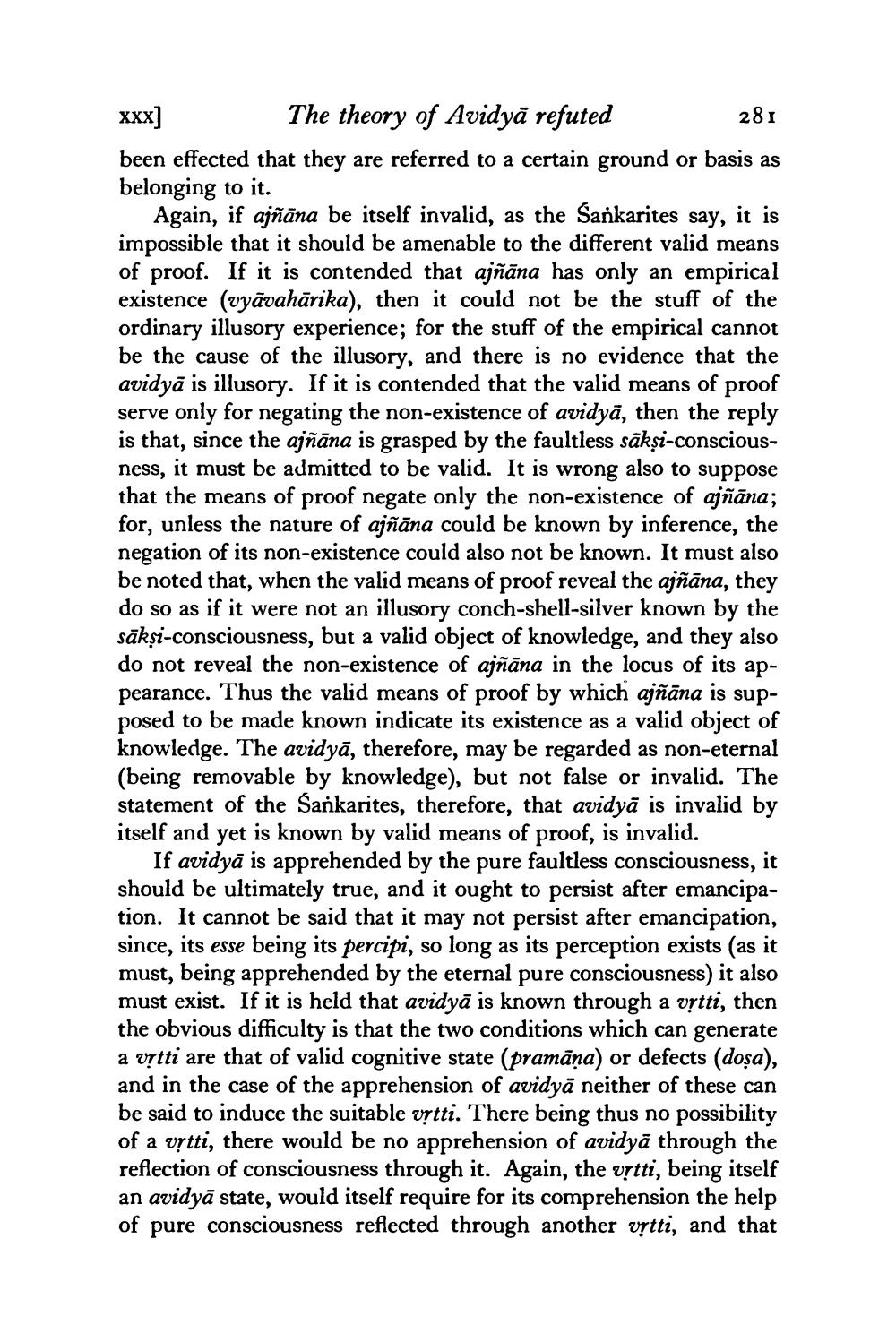________________
xxx] The theory of Avidyā refuted
281 been effected that they are referred to a certain ground or basis as belonging to it.
Again, if ajñāna be itself invalid, as the Sankarites say, it is impossible that it should be amenable to the different valid means of proof. If it is contended that ajñāna has only an empirical existence (vyāvahārika), then it could not be the stuff of the ordinary illusory experience; for the stuff of the empirical cannot be the cause of the illusory, and there is no evidence that the avidyā is illusory. If it is contended that the valid means of proof serve only for negating the non-existence of avidyā, then the reply is that, since the ajñāna is grasped by the faultless sāksi-consciousness, it must be admitted to be valid. It is wrong also to suppose that the means of proof negate only the non-existence of ajñāna; for, unless the nature of ajñāna could be known by inference, the negation of its non-existence could also not be known. It must also be noted that, when the valid means of proof reveal the ajñāna, they do so as if it were not an illusory conch-shell-silver known by the sākṣi-consciousness, but a valid object of knowledge, and they also do not reveal the non-existence of ajñāna in the locus of its appearance. Thus the valid means of proof by which ajñāna is supposed to be made known indicate its existence as a valid object of knowledge. The avidyā, therefore, may be regarded as non-eternal (being removable by knowledge), but not false or invalid. The statement of the Sankarites, therefore, that avidyā is invalid by itself and yet is known by valid means of proof, is invalid.
If avidyā is apprehended by the pure faultless consciousness, it should be ultimately true, and it ought to persist after emancipation. It cannot be said that it may not persist after emancipation, since, its esse being its percipi, so long as its perception exists (as it must, being apprehended by the eternal pure consciousness) it also must exist. If it is held that avidyā is known through a vrtti, then the obvious difficulty is that the two conditions which can generate a vrtti are that of valid cognitive state (pramāna) or defects (dosa), and in the case of the apprehension of avidyā neither of these can be said to induce the suitable vrtti. There being thus no possibility of a vịtti, there would be no apprehension of avidyā through the reflection of consciousness through it. Again, the vrtti, being itself an avidyā state, would itself require for its comprehension the help of pure consciousness reflected through another vịtti, and that




